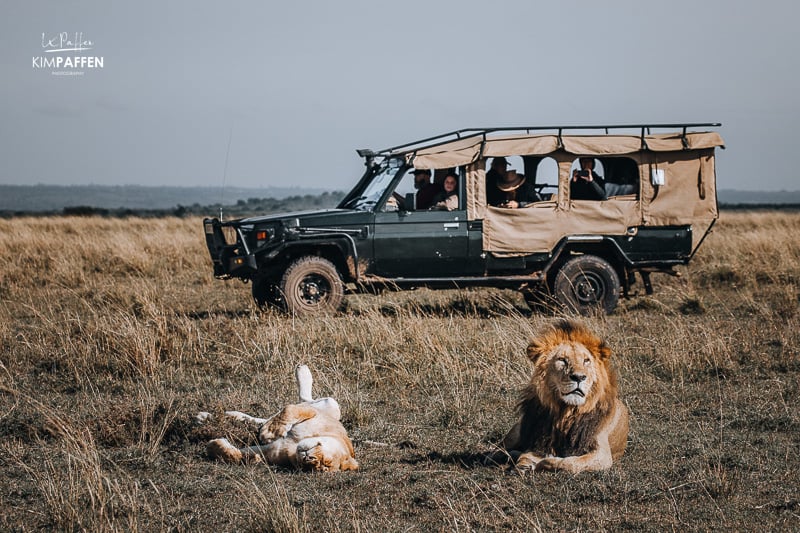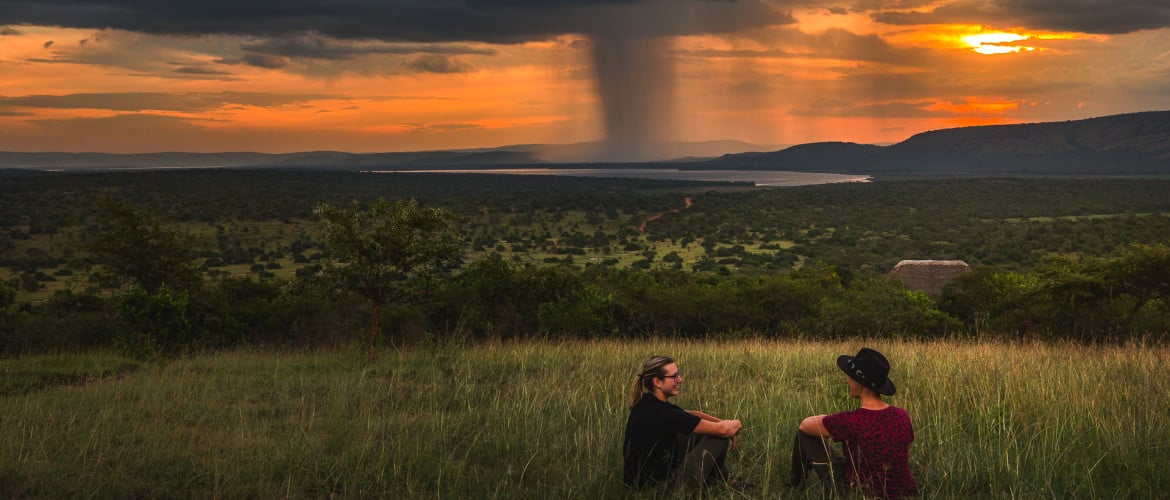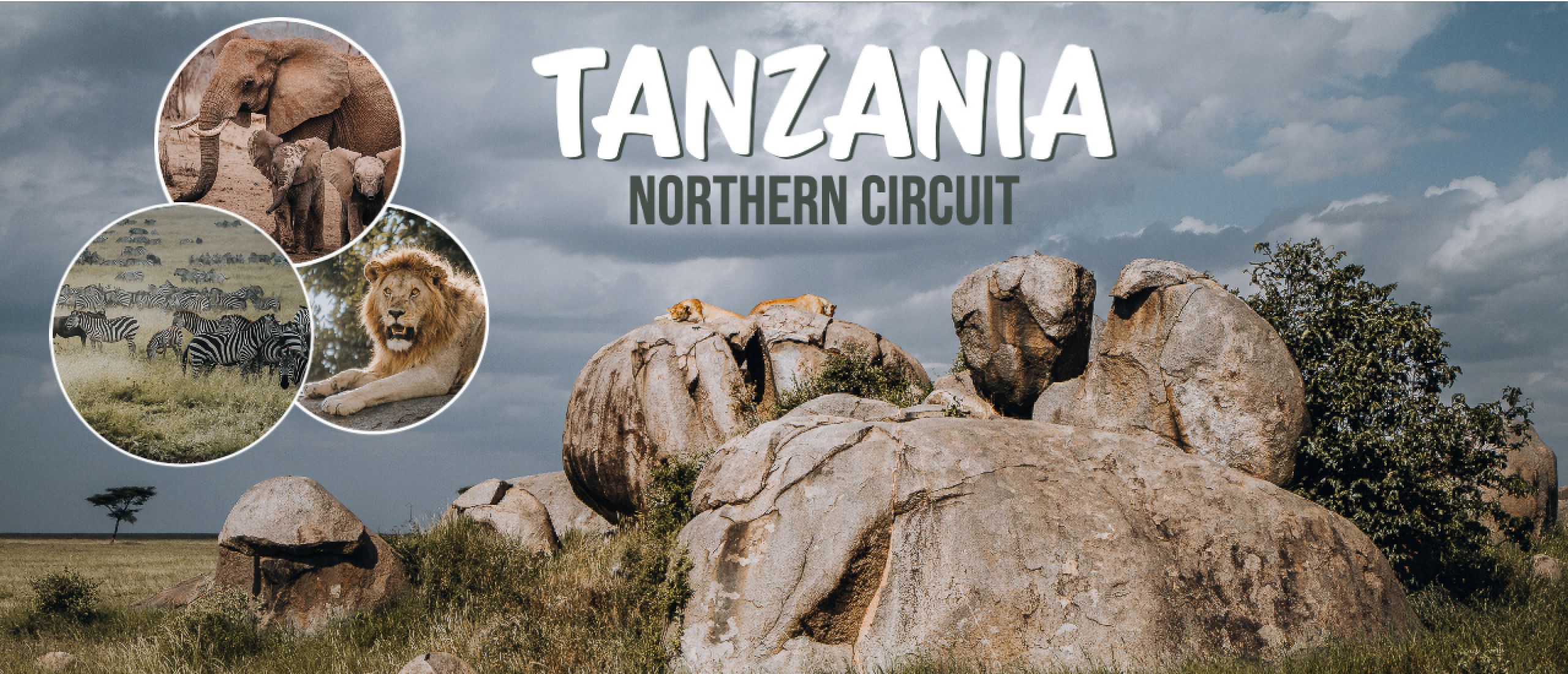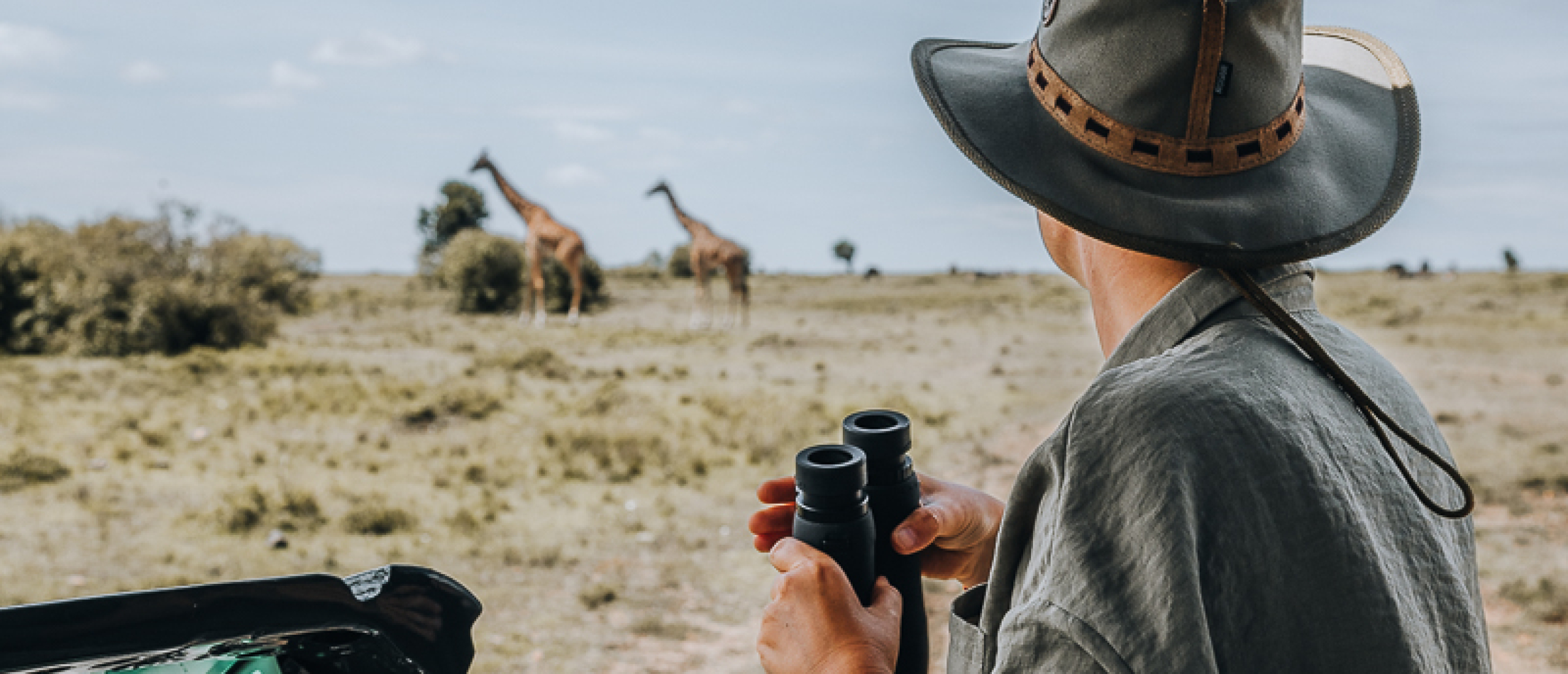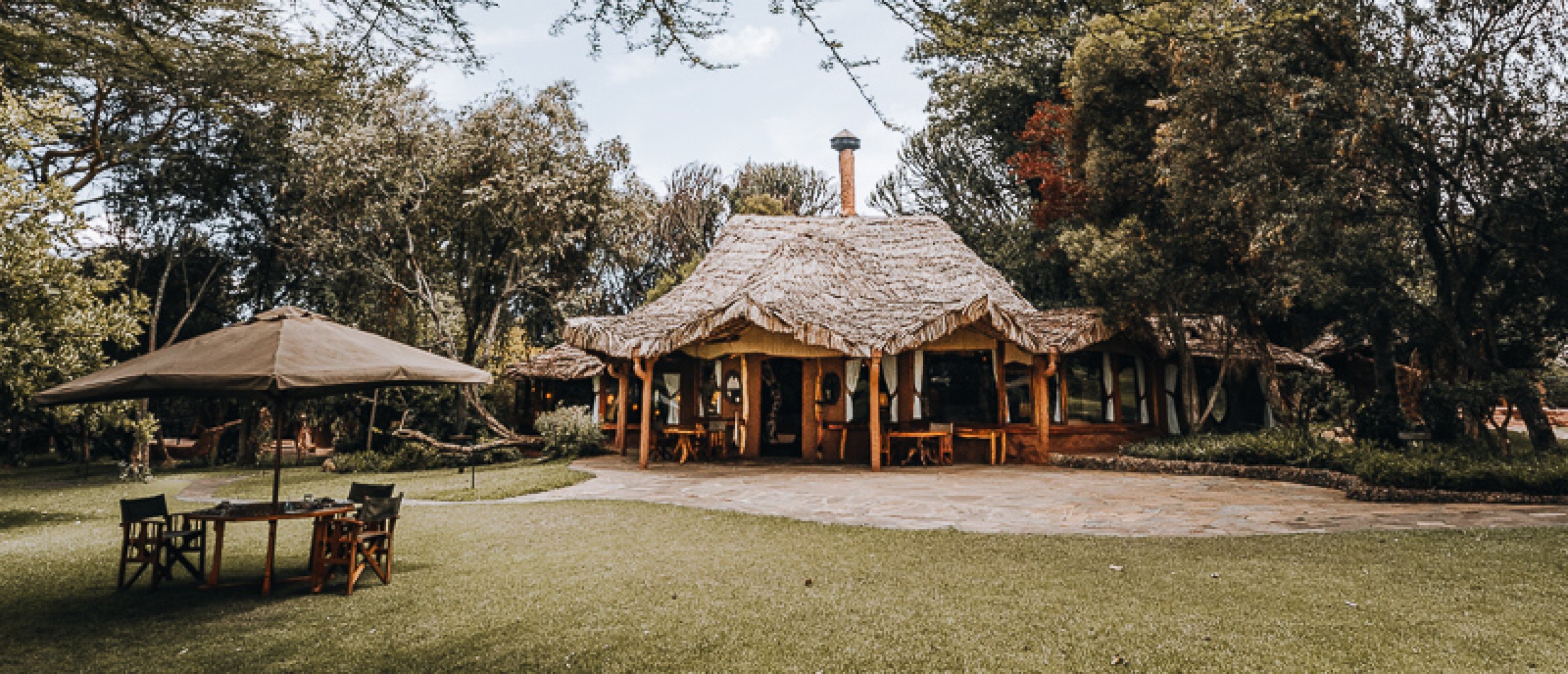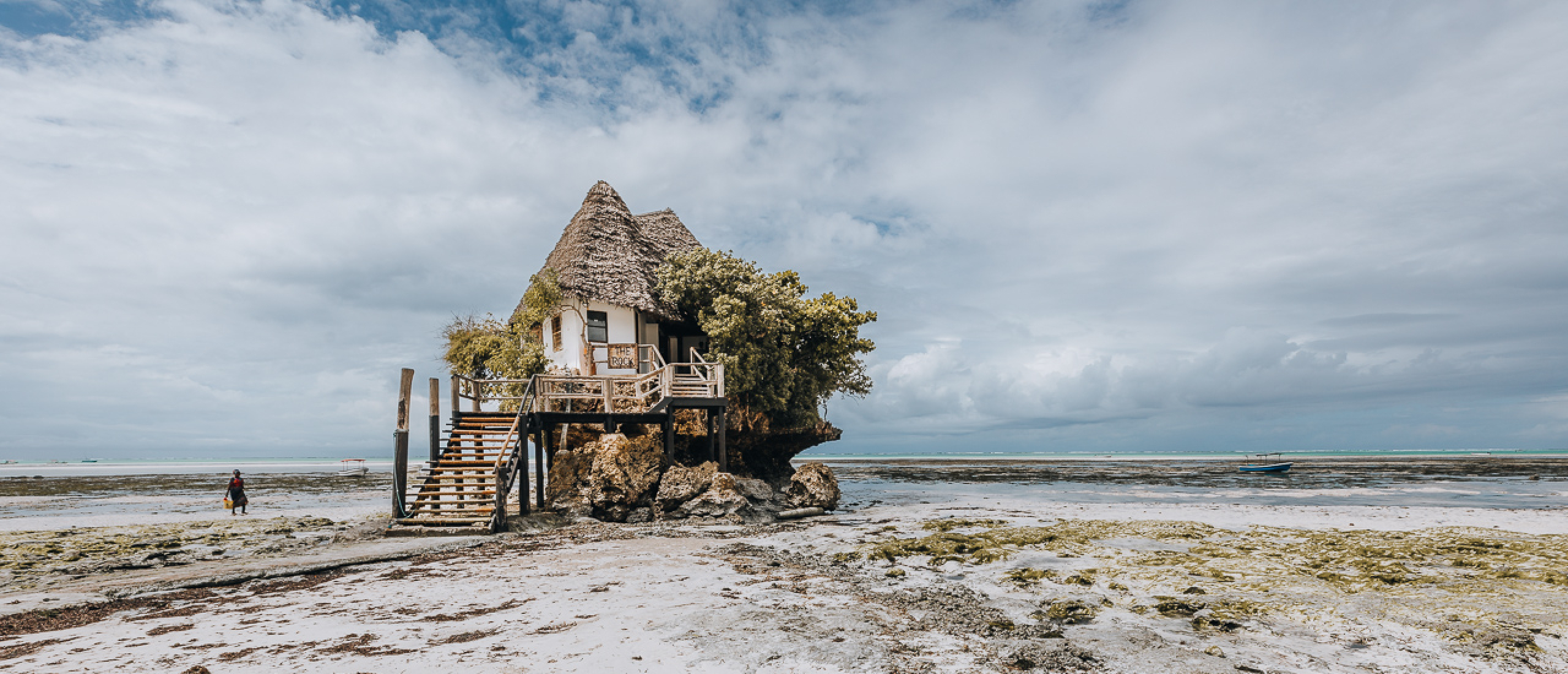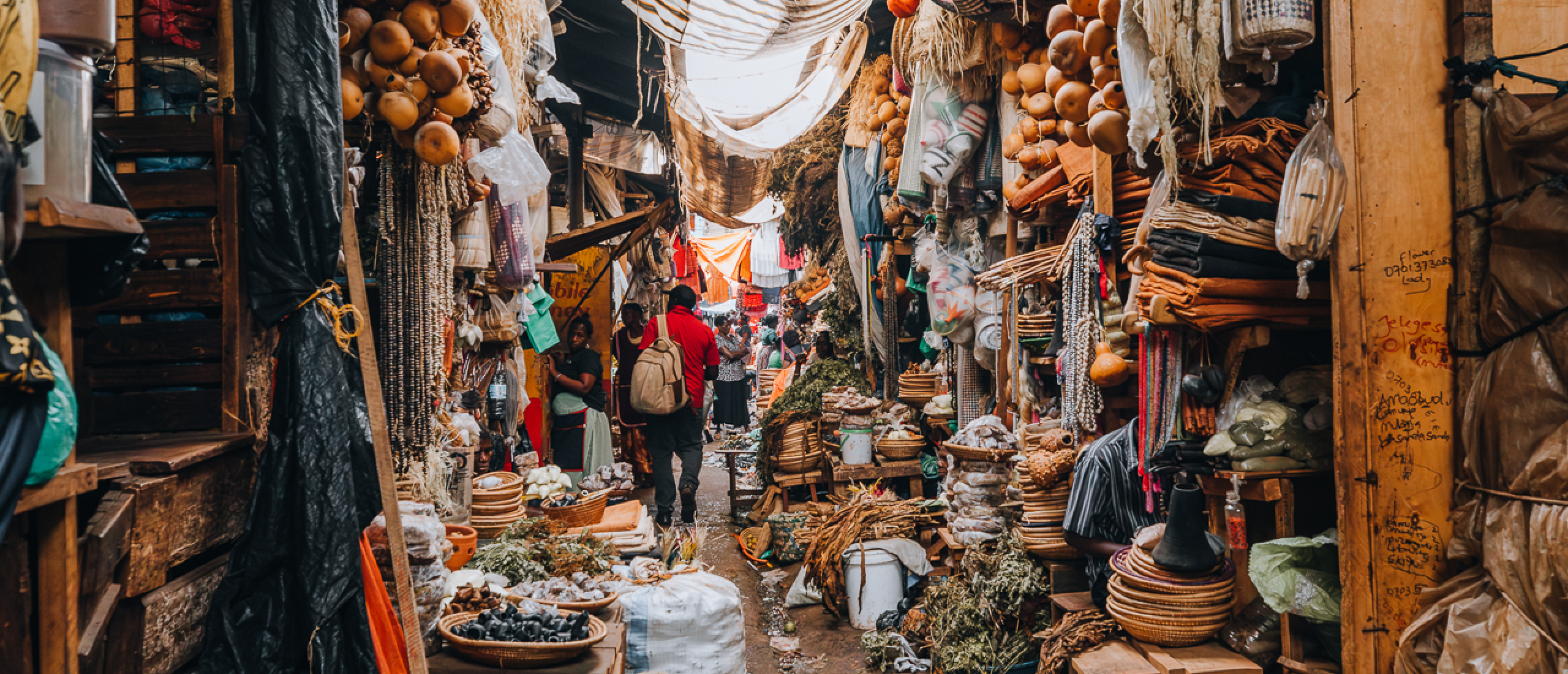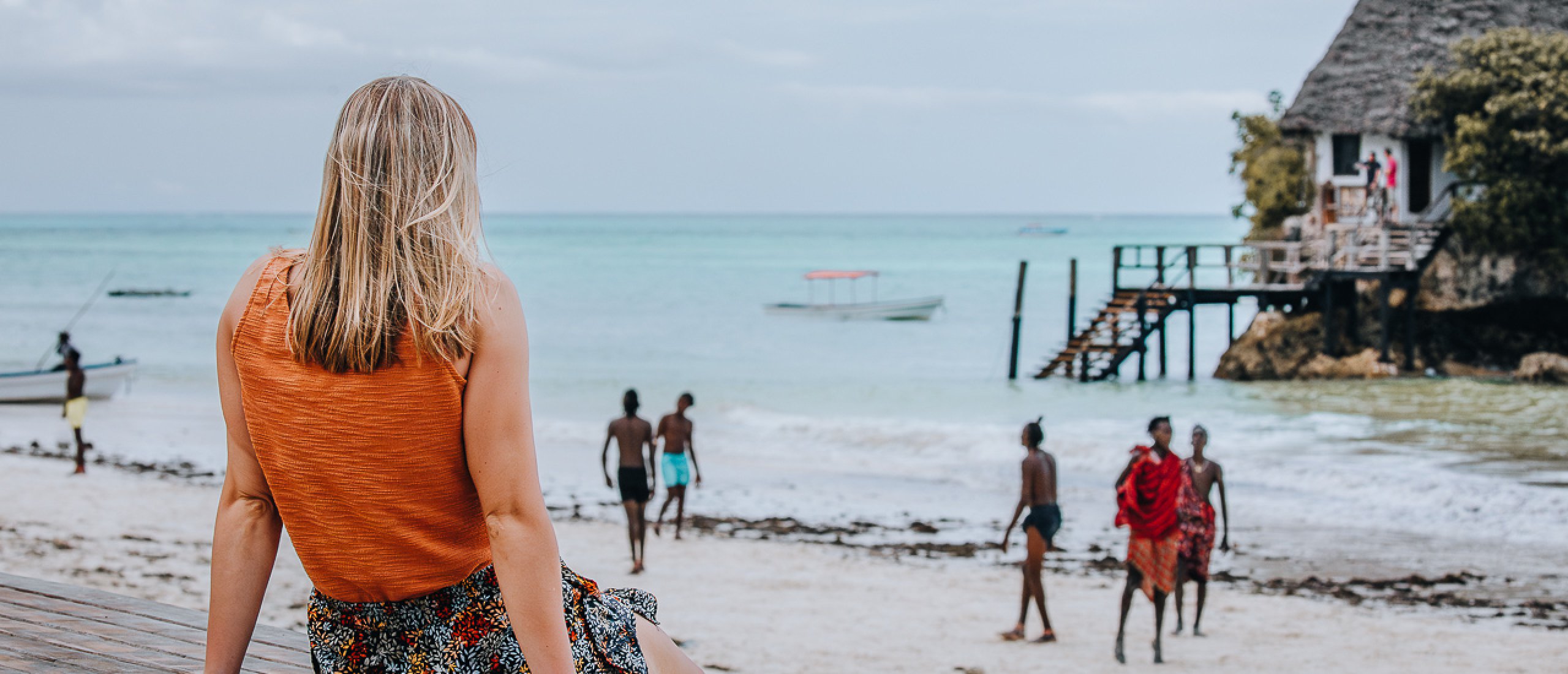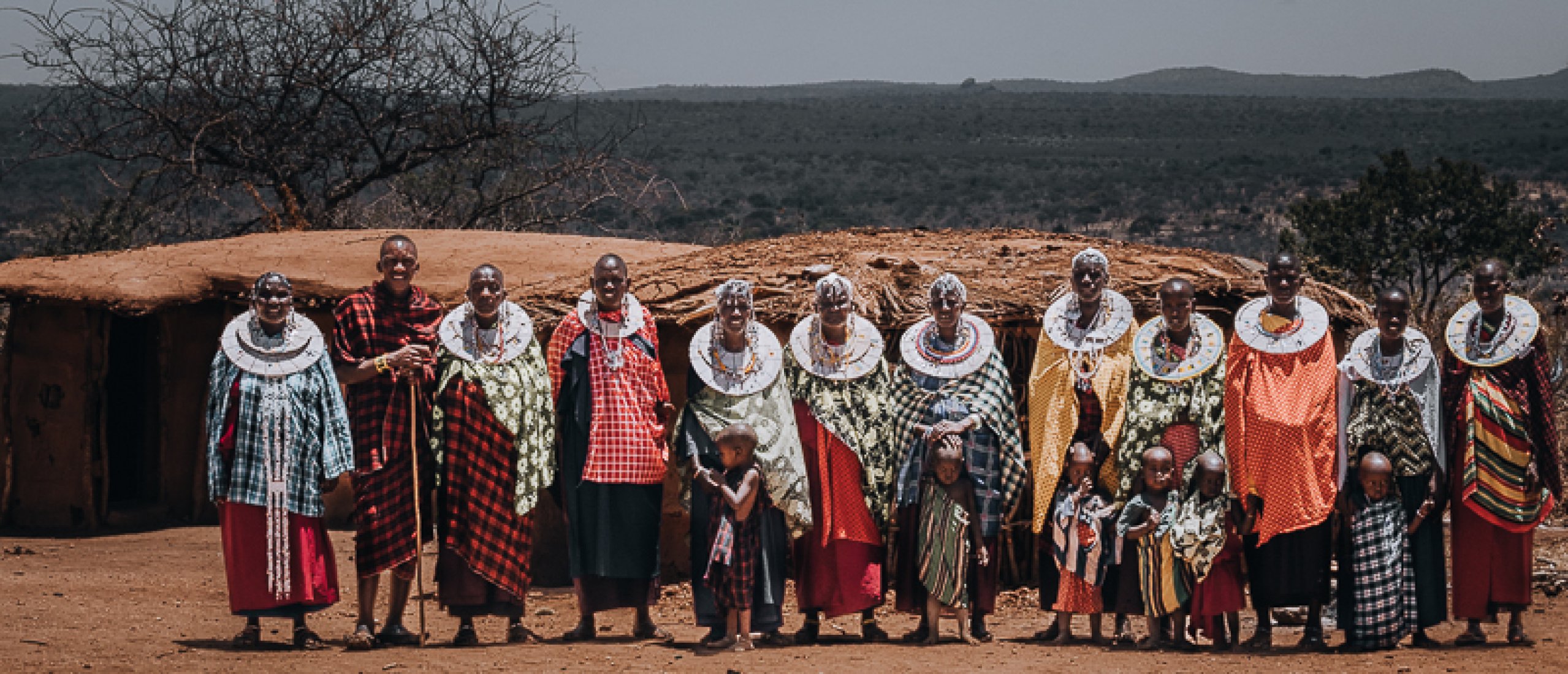
Are you traveling to Kenya, Tanzania, or any other East African country soon? Then it's useful to know some common Swahili words and phrases. Swahili is the national language of Kenya, Tanzania, and the Democratic Public of Congo and is widely spoken in Uganda, and in smaller numbers in Rwanda, Burundi, Malawi, Mozambique, and North Zambia. It’s one of the easiest African languages to learn, especially if you speak English. A big advantage of the Swahili language is that the pronunciation of Swahili words is exactly how they’re spelled.
Embarking on a journey to learn Swahili easily. We will dive into the most common Swahili words and phrases, in other words: Learn Swahili for beginners! After reading this article, you can say more than just Swahili phrases like hakuna matata. You know how to introduce yourself in Swahili, to greet in Swahili, and you will learn basic Swahili phrases to make traveling in East Africa easier. Embark on your Swahili learning adventure right here!
Swahili Language Origin
Swahili, also known by its local name Kiswahili, is the native language of the Swahili people, who are found primarily in Tanzania, Kenya, and Mozambique. It is one of the most widely used African languages, encompassing more than a dozen main dialects.
The Swahili people are a Bantu ethnic group, inhabiting East Africa's lands. That makes the Swahili language one of the Bantu languages that have been influenced by a variety of other languages, including Arabic, Portuguese, and German. The Bantu language family is a large family of languages spoken by the Bantu people in the southern half of Africa.
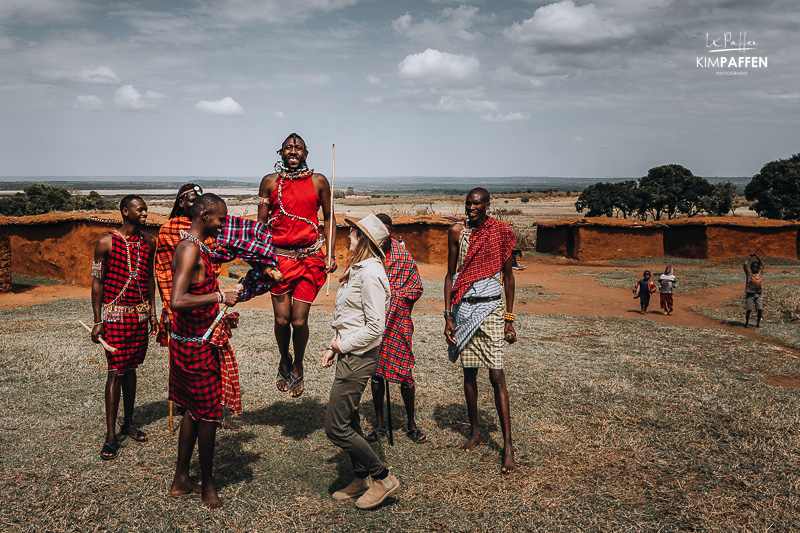
Learn to greet in Swahili
Jambo is a Swahili greeting that means ‘hello’ in English. Mambo refers to ‘how are you’ as well. When greeted with ‘jambo’ you can respond with ‘jambo’. When greeted with Mambo, respond with ‘poa’ (Cool). I found that Jambo is used mostly among tourists, while locals use the word 'mambo' as an informal way (slang) of greeting.
Habari also means ‘Hello’ and is often used when speaking to older people. The best response is 'nzuri', which means ‘I am fine’. Nzuri is a positive word that’s often used in the Swahili language. You can also use it when something is beautiful, good, or nice.
If you would like to refer to a particular part of the day, instead of ‘hello’ in general, it’s best to use ‘habari’. If you want to say 'good morning', you say 'Habari ya (za) asubuhi', for 'good afternoon', use 'Habari za (ya) mchana' and if you want to say ‘good evening’, you say 'Habari ya (za) jioni'. For wishing a ‘good night’ you can say lala salama.
'Ya' is the 'of' used to talk about a single thing in the I- noun class. 'Za' is used for 'of' when speaking of multiple things in that noun class. The difference in the "habari" greeting may vary geographically. They mean the same thing.
The best way to say ‘we will see each other’ or ‘see you later’, is Tutaonana baadaye. It’s often said right before saying ‘goodbye’ which is kwa heri in Swahili. To wish someone a good day before saying ‘kwa heri’ you can say Siku njema, meaning ‘have a good day’.
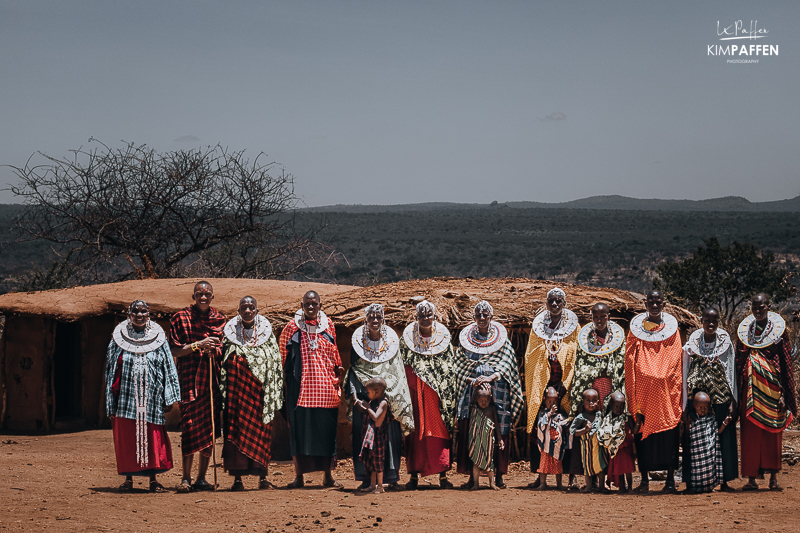
Swahili | English |
Jambo / Mambo / Habari | Hello |
Habari za/ya asubuhi | Good morning |
Habari za/ya mchana | Good afternoon |
Habari za/ya jioni | Good evening |
Lala salama | Good night |
Tutaonana baadaye | See you later |
Kwa heri | Goodbye |
Siku njema | Have a good day |
Ask how someone is in Swahili
If you are comfortable in trying to start a small conversation in Swahili, you can say ‘how are you’ by asking hujambo?. If you ask two or more people ‘how are you all’ you say hamjambo. If someone asks you how you are doing, you can respond with sijambo which means ‘I am fine’. If you are in a group, you can say leo hatujambo which means ‘we are fine today’.
Swahili | English |
Hamjambo? | How are you all? |
(name), hujambo? | (name), how are you? |
Sijambo | I am fine |
Leo hatujambo | We are okay today |
Introducing yourself in Swahili
Locals appreciate it if you show interest in their local language and culture. The locals will definitely like it if you introduce yourself in Swahili. To tell someone your name, you can say Jina langu ni [your name] which means ‘my name is…’. To ask the other one's name, you can ask jina lako ni nani? meaning ‘what is your name?’
To tell them where you’re from, you can say ‘mimi ni’ followed by your country. For example, mimi ni Waholanzi (Dutch), mimi ni Wachina (Chinese), mimi ni Wamerekani (American). The plural noun is ‘Sisi ni…’ meaning ‘we are…’.
Swahili | English |
Jina langu ni… | My name is… |
Jina lako ni nani? | What is your name? |
Sisi ni Waholanzi / Wachina / Wamerekani | We are Dutch / Chinese / Americans |
Mimi ni Waholanzi / Wachina / Wamerekani | I am Dutch / Chinese / Americans |
Basic Swahili words to know when traveling
Apart from the above Swahili words and phrases, there are a lot more useful phrases and words to know when traveling to East Africa, like asante (thank you), karibu (welcome), tafadhali (please), and hakuna matata (no worries).
Find more Swahili common phrases and words below!
Swahili | English |
pole | sorry |
samahani | excuse me |
asante (sana) | thank you (very much) |
Karibu | You’re welcome |
Hakuna Matata | No worries |
sawa | okay |
Njema, nzuri, salama | Good, fine |
Mbaya | Bad |
Tafadhali | Please |
Ndiyo | Yes |
Hapana | No |
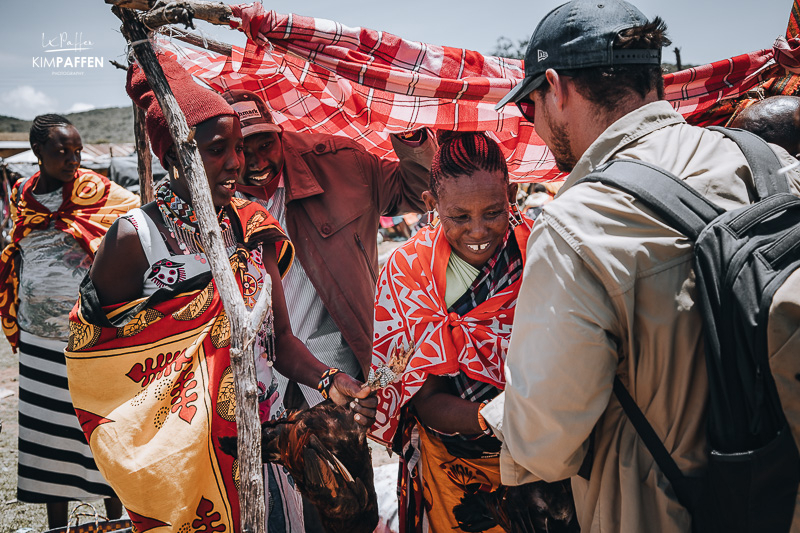
Hapana, asante | No, thank you |
sielewi | I don’t understand |
Sisemi Kiswahili | I don’t speak Swahili |
Unazungumza kingereza? | Do you speak English? |
choo kiko wapi? | Where is the toilet? |
Ningependa kahawa | I’d like a coffee |
Maji, tafadhali | water, please |
Bili, tafadhali | The bill, please |
Naweza kulipa na kadi ya mikopo? | Can I pay with a credit card? |
Asante kwa huduma nzuri | Thank you for the good service |
Personal pronouns
In English personal pronouns are (I, you, he, she, we, you, they), and (me, you, him, her, us, you, them), In Swahili, the personal pronouns are ‘Mimi’ (I), ‘wewe’ (you), ‘yeye’ (he/she), ‘sisi’ (we), ‘nyinyi’ (you), and ‘wao’ (they).
The possessive pronouns in Swahili have no feminine or masculine aspect. They depend mainly on the pronouns and the noun class.
Swahili | English |
Mimi | I |
Wewe | You (Singular) |
Yeye | He/She |
Sisi | We |
Nyinyi | You (plural) |
Wao | They |
Counting in the Swahili language
Apart from Swahili words and phrases, it’s also useful to count in the Swahili language. Find out how to count from one to ten below!
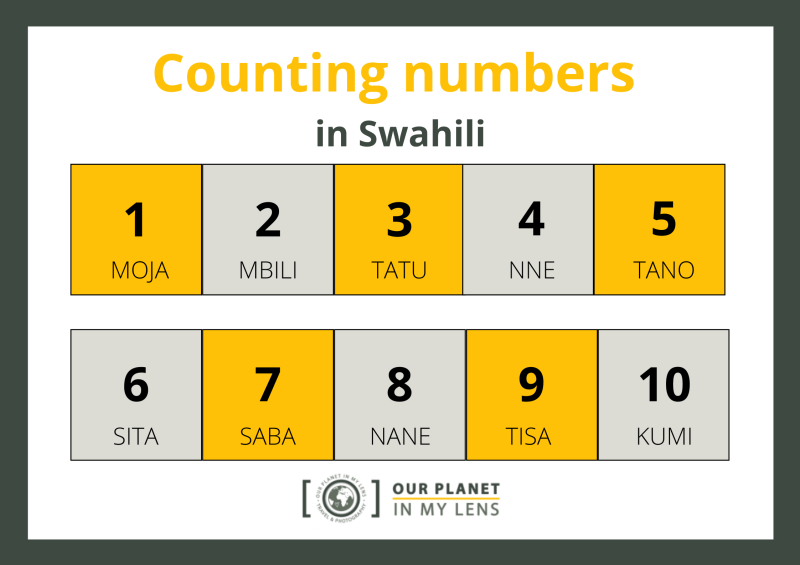
Learning Swahili for beginners by singing!
In many accommodations, you will be welcomed by singing and dancing staff members. They often sing the catchy Swahili song ‘Jambo Bwana’ which includes several common Swahili phrases and greetings in the Swahili language. Check out the original version by ‘Them Mushrooms’ below.
With the below lyrics and Swahili translation to English, you can sing along!
Jambo, Jambo bwana (hello, hello sir)
Habari gani? (how are you?)
Mzuri sana (very fine)
Wageni, (visitors, guests)
Mwakaribishwa (you have been welcomed)
Kenya yetu (our Kenya)
Hakuna matata (No worries)
The Swahili basics
Practicing is a crucial aspect of mastering any language, and the same holds true for learning Swahili. Whether you're using a Swahili learning app, such as Duolingo, or other resources to learn Swahili online., regular practice not only helps reinforce vocabulary and grammar but also boosts confidence in how to speak Swahili effectively. Using an app to learn Swahili in a fun and engaging way. Try to finish one lesson each day to learn Swahili consistently.
After learning these basics of the Swahili language, you’re ready for your East African adventure. Are you still looking for some inspiration to go on Safari in East Africa? What about a gorilla trekking in Bwindi National Park, a balloon safari in Serengeti National Park, or spotting wildlife on a game drive in the Maasai Mara National Reserve?
Safari salama! (safe trip!)
